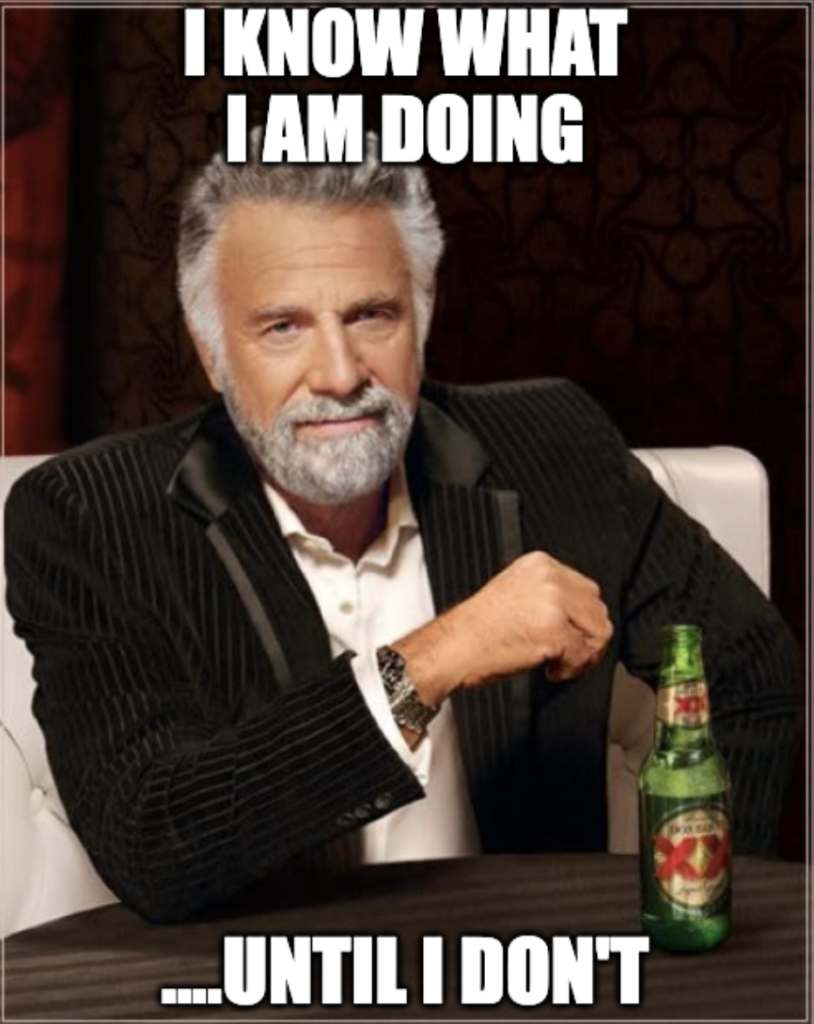The overconfidence bias is what leads individuals to overestimate their abilities and knowledge. It is a common bias that can have a significant impact on our decision-making, both personally and professionally.
How overconfidence bias works
Overconfidence bias can be caused by a number of other behavioural factors, including:
- Framing: The way that a choice is presented can influence our decision-making. For example, we are more likely to choose a frame that avoids losses, even if the outcome is the same. For example, we are more likely to choose to “keep $1,000” than to “avoid losing $1,000.”
- Confirmation bias: Confirmation bias is our tendency to seek out information that confirms our existing beliefs and to ignore information that contradicts them. This can lead us to overestimate our abilities and knowledge, because we are more likely to focus on our successes and to ignore our failures.
- Illusion of control: The illusion of control is our tendency to believe that we have more control over events than we actually do. This can lead us to overestimate our ability to predict and control outcomes.
Real-life examples of overconfidence bias
Here are a few real-life examples of overconfidence bias:
- Investing: Investors are often overconfident in their ability to pick winning stocks. This can lead them to make risky investments that they may not understand. How many times have we heard news of overconfident stock-picker who and how often their reccomendations turned out to be worthless?
- Career: People may be overconfident in their ability to do a new job or to start their own business. This can lead them to take on too much responsibility or to underestimate the challenges they will face. Sounds familiar maybe?
- Relationships: People may be overconfident in their ability to maintain a relationship or to make their partner happy. This can lead them to neglect their relationship or to have unrealistic expectations.
- Health: People may be overconfident in their ability to stay healthy or to manage a chronic condition. This can lead them to make unhealthy choices or to neglect their health.
- Performance: Improvised athletes tend to overestimate constantly their capacity to perform in a certain challenge. You just started to run and you are able to now run 1 or 2 miles without walking interruption? Well, let’s go for an IRONMAN then!
The impact of overconfidence bias
Overconfidence bias can have a significant impact on our decision-making. It can lead us to make irrational decisions, such as taking on too much risk or neglecting our relationships, it can lead us to injuries or to not take care of our own health. It can also make us more susceptible to scams and other forms of fraud
How to overcome overconfidence bias
There are a few things you can do to overcome overconfidence bias:
- Be aware of your biases: The first step to overcoming overconfidence bias is to be aware of it. Once you are aware of your biases, you can start to question your decisions and make more rational choices.
- Seek out feedback: Feedback from others can help you to identify your strengths and weaknesses, and to get a more realistic assessment of your abilities and knowledge.
- Try to be humble: It is important to be humble and to recognize that you don’t know everything. Be willing to admit when you are wrong and to learn from your mistakes.
On top of that
- Use decision-making tools: There are a number of decision-making tools that can help you to make more rational choices. For example, you can use a decision matrix to weigh the pros and cons of different options.
- Get help from others: If you are struggling to make a decision, don’t be afraid to ask for help from others. A trusted friend, family member, or colleague can offer you support and guidance.
- Don’t be afraid to fail: Failure is a natural part of life. Everyone fails at some point. The important thing is to learn from our failures and keep moving forward. If you are afraid of failing, you may be less likely to take risks and pursue your goals.

